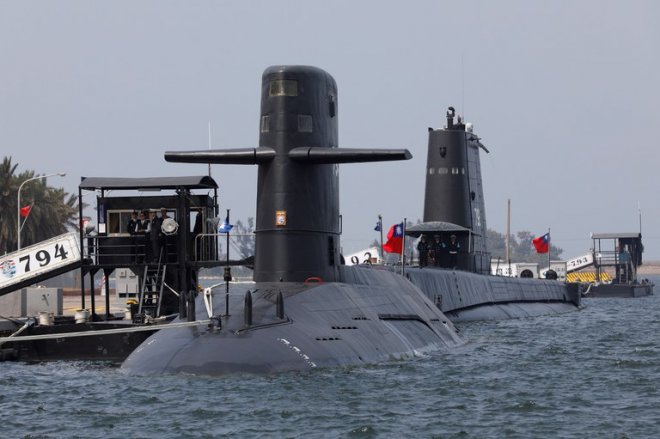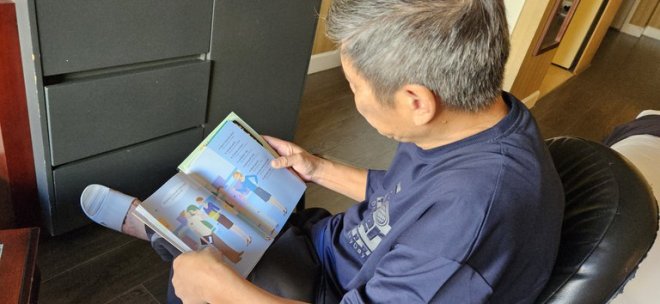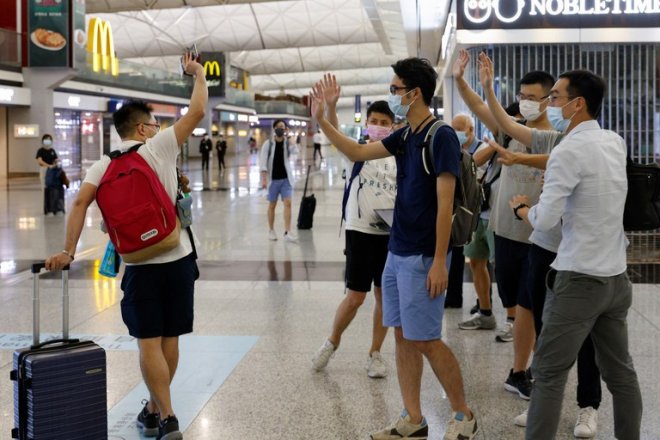Taiwan to extend mandatory military service from 4 to 12 months
Taiwan President Tsai Ing-wen announced on Tuesday that mandatory military service will be extended from four months to one year to strengthen the island’s army amid security threats from China.The new system, which also boosts conscripts’ starting monthly salary threefold, will become effective on Jan. 1, 2024, Tsai announced during a press briefing where she unveiled the government’s “Strengthening the National Defense Force Structure Adjustment Plan.”
Since 2013, Taiwan has required men over 18 to serve four months in the military.
The armed forces will be divided into four main categories – the main combat force, the garrison force, the civil defense system and reservists – according to the plan.
The latest training models from the U.S. military will be introduced to boost the army’s combat readiness.
“Our message [today] to the people of Taiwan is that, faced with the ever-changing situation in the region, we will continue to adjust our preparation in terms of our civil defense mechanism and we will continue to review and make changes whenever necessary,” Tsai told the press conference.
Tsai said friends of Taiwan will see “how much importance we attach to the national defense and they will see our determination to safeguard and defend our land.”
 Submarines are seen at a navy base in Kaohsiung, Taiwan on Mar. 21, 2017. Credit: Reuters/Tyrone SiuOn Friday, U.S. President Joe Biden signed into law a defense bill that will allow up to U.S.$2 billion of military loans to the island to bolster its capabilities against potential Chinese attacks.
Submarines are seen at a navy base in Kaohsiung, Taiwan on Mar. 21, 2017. Credit: Reuters/Tyrone SiuOn Friday, U.S. President Joe Biden signed into law a defense bill that will allow up to U.S.$2 billion of military loans to the island to bolster its capabilities against potential Chinese attacks.However, Tsai said that there was “no pressure from the U.S.” on Taiwan to carry out military reform, and that the structure adjustment plan was based on a joint evaluation conducted by the Defense Ministry and the National Security Council.
Ambitious plan
“This very ambitious reform plan may take a long time to get right as it requires a great amount of inter-agency efforts as well as amendments of current laws,” said Alexander Huang, a professor at Tamkang University in Taipei and former deputy minister at Taiwan’s Mainland Affairs Council.
Military experts have been talking about 2027, when China’s paramount leader Xi Jinping completes his third term, as a pivotal year in the cross-strait security situation.
“Between now and then, a lot of preparation needs to be done and we may not have enough time,” said Huang, a political scientist from the main opposition Kuomintang party.
At the press conference, Tsai said that as the army’s commander-in-chief, she hoped to achieve the reform goals within her tenure but she believed that the reform “will be continued regardless whether there is a change of power in 2024 or not.”
The next presidential election, in which Tsai is ineligible to seek a third term, will take place in early 2024 and analysts predict that rising tensions with China will be high on the election agenda.
Indigenous submarine
Under Tsai, the Taiwanese military has been carrying a number of projects to modernize the defense structure and equipment, with a focus on so-called “asymmetric warfare capabilities.”
Asymmetric warfare is a kind of conflict between two opponents whose military power and strategy differ greatly.
In November 2020, the president launched the Indigenous Defensive Submarine Program at a new submarine factory in the southern port city of Kaohsiung.
The plan is to build as many as eight diesel-electric submarines at an estimated cost of U.S.$16 billion.
In April 2021, the United States approved the export of sensitive technology including three major types of equipment — digital sonar systems, integrated combat systems and an auxiliary equipment system such as periscopes – for the fleet.
Taiwan’s CSBC Corp., the company in charge of the submarine production, announced on Monday that it is “on course to launch the first domestically-developed submarine by September 2023.”
Taiwanese media said the submarine can carry MK-48 MOD 6 Advanced Technology heavyweight submarine-launched torpedoes and Harpoon anti-ship missiles.
To compare, China is believed to have 66 submarines, the number likely to increase to 76 by 2030, according to the U.S. Office of Naval Intelligence.
[圖擷取自網路,如有疑問請私訊]
|
本篇 |
不想錯過? 請追蹤FB專頁! |
| 喜歡這篇嗎?快分享吧! |
相關文章
AsianNewsCast























